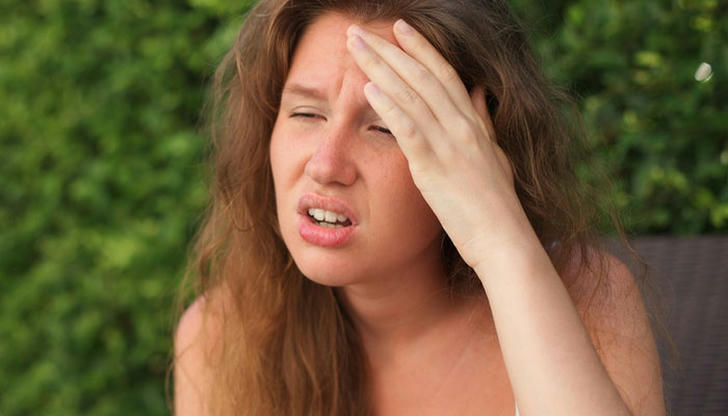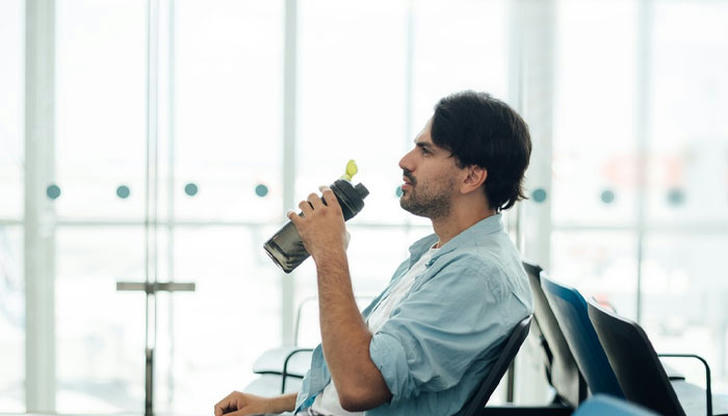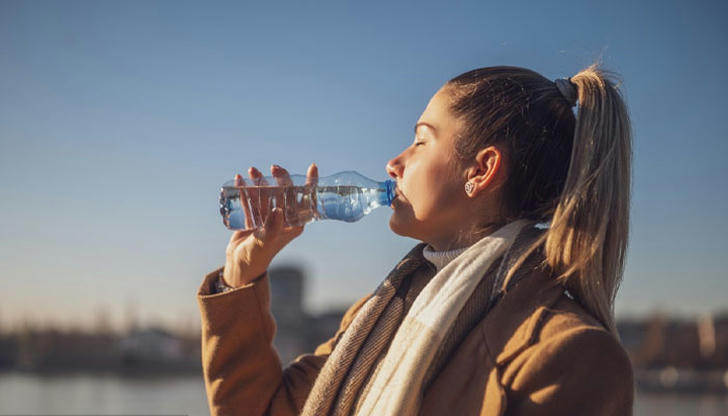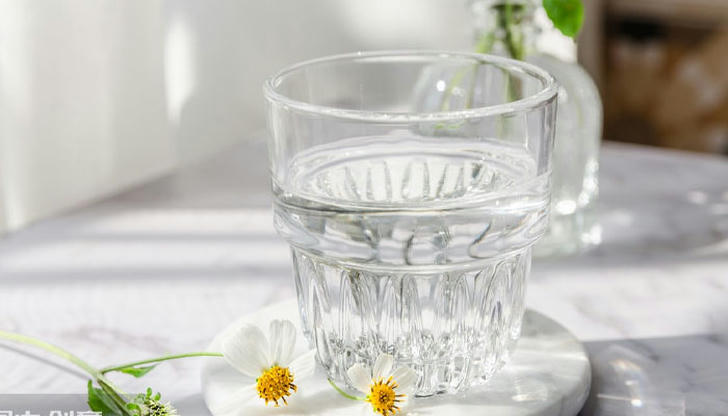4 Sneaky Reasons You’re Dehydrated That Have Nothing to Do with Drinking Water

Water is absolutely essential for our health. Did you know that around 75% of our bodies are made up of water? It plays a crucial role in building cells, regulating body temperature, supporting healthy digestion, and balancing electrolytes. When we don’t drink enough water, our bodies can become dehydrated. The early signs of dehydration include things like dry skin, a dry mouth, dizziness, fatigue, and dark or infrequent urination. If dehydration gets more severe, you might experience confusion, fainting, rapid breathing, or even shock.
To keep your body functioning well, staying hydrated is key. While drinking water is obviously important, it’s not the only thing you need to pay attention to. Here are four unexpected ways dehydration can sneak up on you, and some easy tips to prevent it:
1. Airplane Travel

Traveling on a plane can take a toll on your hydration levels. The air inside an airplane has much lower humidity than the air we breathe on the ground. This dry air can leave you feeling dehydrated after a flight. While flying isn’t the problem itself, it’s important to stay proactive about hydration. The solution is simple: drink water before and during your flight. Make sure you’re hydrating regularly while traveling so that dehydration doesn’t catch you off guard.
2. Too Much Added Sugar

You might not realize it, but consuming too much added sugar can lead to dehydration. Even though sugary drinks like sodas are in liquid form, they can actually cause your body to lose water. How? Well, when you consume excess sugar, your body releases water from its cells to help restore balance. This process leads to more urination, which can leave you dehydrated. It may sound strange, but it’s true. Research on animals shows that sugary beverages can worsen dehydration and even damage the kidneys. While we need more human studies to fully understand how sugar affects hydration, it's a good idea to cut back on sugary drinks like sodas and opt for water or healthier options instead.
3. Drinking Alcohol

It’s no surprise that alcohol can dehydrate you, but there’s more to it than just needing a bathroom break after a drink. When you drink alcohol, it suppresses a hormone called vasopressin, which is responsible for helping your body retain water. Without vasopressin, you end up losing more water than you should. This leads to frequent urination, which contributes to dehydration. When you’re drinking alcohol, especially if you’re not eating or drinking other fluids alongside it, you might not even notice how much water you’re losing. To combat this, it’s a great idea to hydrate before you drink and alternate alcoholic drinks with water throughout the evening. This will help keep you hydrated while still enjoying your drink of choice.
4. Not Adjusting Hydration When You’re Sick

Being sick is another time when dehydration can sneak up on you. When you're unwell, your body loses fluids through fever, sweating, vomiting, and diarrhea. It’s even more important to drink water when you're sick because your body needs that fluid to maintain essential functions, like regulating your temperature, transporting nutrients, and getting rid of waste. When you're sick and dehydrated, these processes are impaired, and your body can have a harder time recovering. Dehydration can also weaken your immune system, making it harder for your body to fight off infections. Drinking plenty of water helps replenish lost fluids and gives your body the support it needs to heal faster.
Practical Tips to Stay Hydrated
Staying hydrated doesn’t have to be difficult, and there are plenty of small habits you can build into your day to make sure you’re drinking enough water. Here are a few simple strategies:
• Carry a reusable water bottle: Keep a water bottle by your bed and drink from it first thing in the morning when you wake up. Carry it with you throughout the day to make sure you’re getting enough water.
• Use smaller cups: Instead of large glasses or water bottles, try using small 8‑ounce cups or mugs. People often feel less overwhelmed by smaller portions, and it’s easier to track how much you’ve had to drink.
• Create a routine: Link drinking water to activities you already do. For example, take a sip of water every time you sit down at your desk, check your phone, or walk into the kitchen. By making it a part of your routine, you’ll drink more water without even thinking about it.
• Make water more interesting: If plain water gets boring, try adding some natural flavors! You can add fresh fruit like lemon, lime, berries, or even cucumber. Fresh herbs like mint or basil can give your water a fun twist, too. It’s a great way to enjoy some variety while staying hydrated.
• Eat water-rich foods: If you’re having trouble drinking enough water, remember that you can also hydrate by eating foods with high water content. Many fruits and vegetables are packed with water and also provide important nutrients. Cucumbers, bell peppers, lettuce, tomatoes, citrus fruits, berries, and melons are all excellent choices to add to your diet. These foods not only help with hydration but also give you fiber, vitamins, and minerals.
Stay Ahead of Dehydration
The key to preventing dehydration is staying proactive. If you’re consistently drinking enough water and taking care to avoid the habits that lead to dehydration, your body will be able to function at its best. Pay attention to how your body feels, and make sure to adjust your hydration habits when you’re traveling, consuming sugary drinks, drinking alcohol, or feeling sick. Simple changes in your routine can make all the difference in keeping you hydrated and healthy.
Remember: water is essential for life, and keeping hydrated will help you feel great, maintain energy, and keep your body running smoothly. Drink up, stay hydrated, and take care of yourself!
